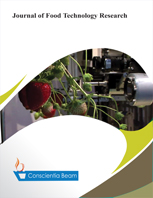The Oils Refining Process and Contaminants in Edible Oils: A Review
DOI:
https://doi.org/10.18488/journal.58.2020.71.9.47Abstract
Edible oils are widely consumed foods. These oils come from various animal materials raw and vegetable products. Edible oils are prone to many contaminants. Contaminants can be found at all levels from oilseed production to conservation through refining processes and end up in oils. The contaminants origin may be of endogenous or exogenous. These are water, phosphorus, non-visible insoluble compounds, free fatty acids, residual hexane, benzo [a] pyrene, pesticides, dioxins, mycotoxins, mineral oils, cargo residues, minerals such as iron, copper, lead, gossypol, many primary and secondary oxidation products, etc. To eliminate or limit these compounds having a nuisance or toxicity for the consumer, it is allowed the refining of oils (chemical, physical or enzymatic). In addition, the regulatory limits of anti-nutritional factors in edible oils have been set in order to obtain quality oils and to guarantee the health of consumer living in developing country. This results in analytical methods developed for quantitative and qualitative evaluation of oils intended for human consumption.

